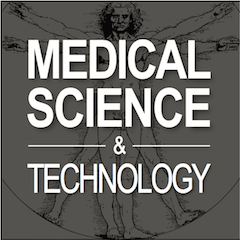Get your full text copy in PDF
Jolanta Jaworek
Med Sci Tech 2005; 46(3): RP3-8
ID: 881467
Melatonin, the main product of the pineal gland is produced from amino acid; L-tryptophan at night. At the day time melatonin is synthetized in the ECL cells of gastrointestinal mucosa and in the liver, and secreted with bile into the gastrointestinal lumen. Thisindoleamineisbelivedtoregulatethecyclicphenomenaoftheorganism.Melatoninisalsoknownas a scavenger of radical oxygen species and considered as a potent organoprotector in many tissues. Experimental studies have shown that melatonin as well as its precursor; L-tryptophan, is able to protect the gastric mucosa against acute lesions and to reduce pancreatic tissue damage in acute pancreatitis. Above protective effectsofmelatoninarerelatedtotheantioxidative properties of its indoleamine, as well as to the improvement of gastric and pancreatic blood flows,tothemodulation of cytokine production, and to the generation of prostaglandins and nitric oxide. Melatonin is able to stimulate pancreatic enzyme secretion thought the mechanism involving CCK release and activation of vagal entero-pancreatic reflexes.TheresultsofexperimentalstudiesindicatethatmelatoninproducedinthegastrointestinaltractfromL-tryptophan,playsan important role in the stimulation of postprandial pancreatic secretion. Because of its antioxidative properties melatonin could be considered as a potent protector of gastrointestinal tissues against the inflammatorydamage.(Clin. Exp. Med. Lett. 2005; 46(3):3-8)
Keywords: Melatonin, L-tryptophan, radical oxygen species, gastric mucosal damage, acute pancreatitis, pancreatic enzyme secretion



